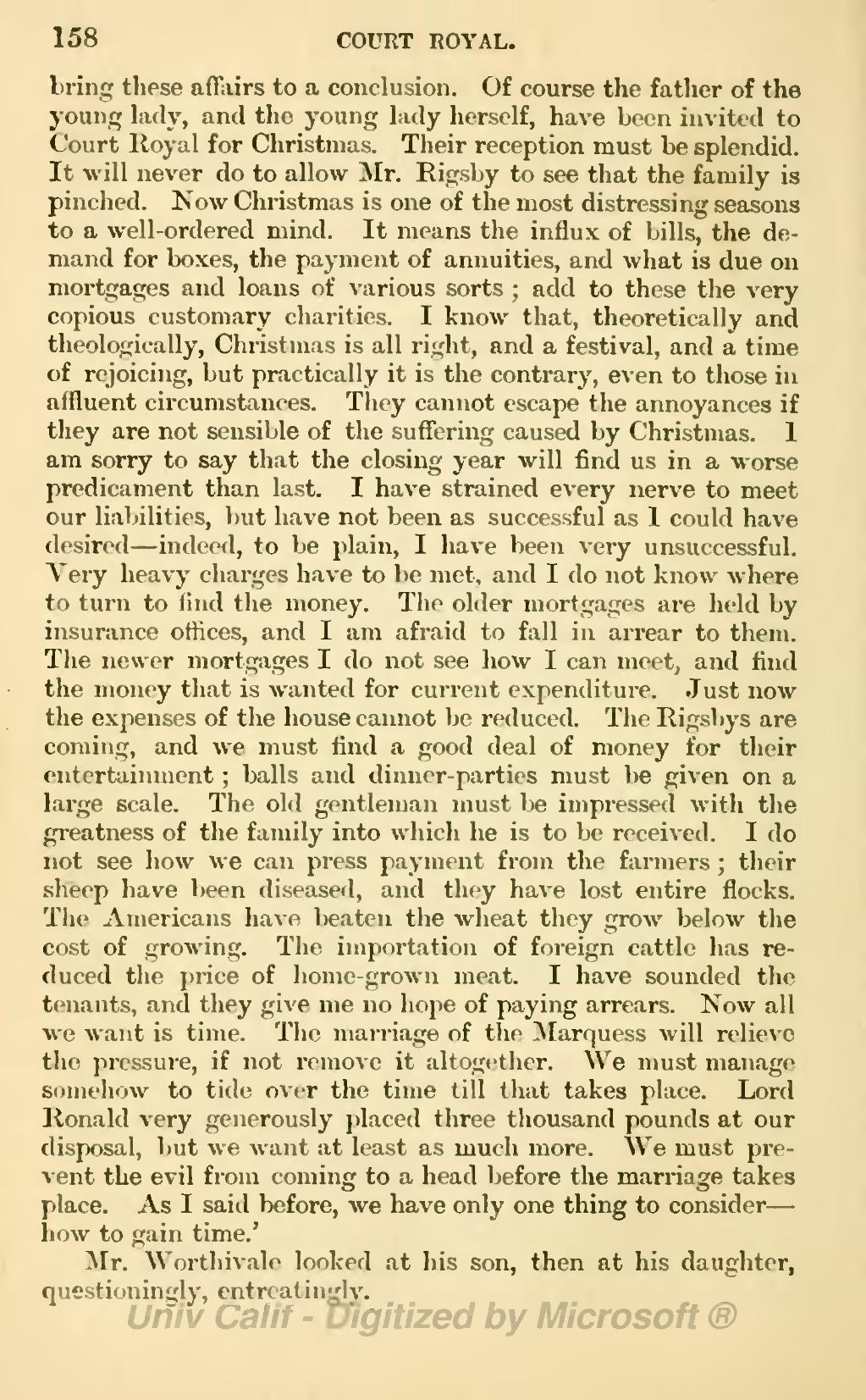bring these affairs to a conclusion. Of course the father of the young lady, and the young lady herself, have been invited to Court Royal for Christmas. Their reception must be splendid. It will never do to allow Mr. Rigsby to see that the family is pinched. Now Christmas is one of the most distressing seasons to a well-ordered mind. It means the influx of bills, the demand for boxes, the payment of annuities, and what is due on mortgages and loans of various sorts; add to these the very copious customary charities. I know that, theoretically and theologically, Christmas is all right, and a festival, and a time of rejoicing, but practically it is the contrary, even to those in affluent circumstances. They cannot escape the annoyances if they are not sensible of the suffering caused by Christmas. I am sorry to say that the closing year will find us in a worse predicament than last. I have strained every nerve to meet our liabilities, but have not been as successful as I could have desired—indeed, to be plain, I have been very unsuccessful. Very heavy charges have to be met, and I do not know where to turn to find the money. The older mortgages are held by insurance offices, and I am afraid to fall in arrear to them. The newer mortgages I do not see how I can meet, and find the money that is wanted for current expenditure. Just now the expenses of the house cannot be reduced. The Rigsbys are coming, and we must find a good deal of money for their entertainment; balls and dinner-parties must be given on a large scale. The old gentleman must be impressed with the greatness of the family into which he is to be received. I do not see how we can press payment from the farmers; their sheep have been diseased, and they have lost entire flocks. The Americans have beaten the wheat they grow below the cost of growing. The importation of foreign cattle has reduced the price of home-grown meat. I have sounded the tenants, and they give me no hope of paying arrears. Now all we want is time. The marriage of the Marquess will relieve the pressure, if not remove it altogether. We must manage somehow to tide over the time till that takes place. Lord Ronald very generously placed three thousand pounds at our disposal, but we want at least as much more. We must prevent the evil from coming to a head before the marriage takes place. As I said before, we have only one thing to consider—how to gain time.’
Mr. Worthivale looked at his son, then at his daughter, questioningly, entreatingly.
